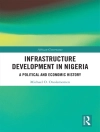National Human Rights Institutions (NHRIs), defined by the UN as bodies established to promote and protect human rights, have increased in number since the General Assembly adopted principles governing their effectiveness in 1993. The UN and others have encouraged states to set up such institutions as an indication of their commitment to human rights, and now over 20 such institutions exist in Africa and many more will follow. These institutions have taken various forms including ombudsmen, commissions, or a combination of the two. They differ in terms of how they are established; some by constitution, some by legislation and some by decree. These NHRIs have varying functions, usually both promotional and protective, such as giving advice to government, parliament, and others, making recommendations on compliance with human rights standards, awareness raising, and analysis of law and policy. Despite the considerable variations in the method of their creation, powers and composition, most of these institutions have chosen or indeed been mandated, to become involved in international and regional fora. This book examines these institutions in the African region, the way in which they use the international and regional fora, the effectiveness of their contributions and how they are able to participate.
Professor Rachel Murray
The Role of National Human Rights Institutions at the International and Regional Levels [PDF ebook]
The Experience of Africa
The Role of National Human Rights Institutions at the International and Regional Levels [PDF ebook]
The Experience of Africa
Beli ebook ini dan dapatkan 1 lagi PERCUMA!
Format PDF ● Halaman-halaman 149 ● ISBN 9781847313645 ● Penerbit Bloomsbury Publishing ● Diterbitkan 2007 ● Muat turun 3 kali ● Mata wang EUR ● ID 5766502 ● Salin perlindungan Adobe DRM
Memerlukan pembaca ebook yang mampu DRM












